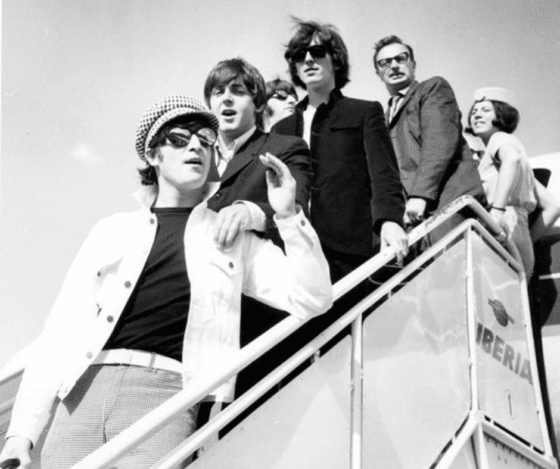Guide
The Beatles
The Context Behind the Breakup
By the late 1960s, tensions had become apparent within The Beatles. Creative differences, personal conflicts, and the pressures of being the world’s biggest band led to their dissolution. While McCartney and Lennon often found themselves in creative opposition, Harrison was eager for greater artistic input, and Starr struggled with feeling undervalued at times. The tragic loss of their manager Brian Epstein in 1967 also left them without a guiding hand, leading to financial and managerial struggles.
A Different Reality: If The Beatles Stayed Together
Musical Evolution
Had The Beatles remained a unit, their sound would have inevitably continued to evolve. The early 1970s saw rock expanding into progressive, folk, and funk-infused sounds. Given their willingness to experiment—evident in Revolver and The White Album—it’s likely they would have explored genres that were emerging at the time, such as psychedelia, jazz-rock, and even early electronic music.
McCartney’s melodic genius, Lennon’s poetic introspection, Harrison’s spiritual depth, and Starr’s rhythmic intuition could have resulted in genre-defying albums akin to Abbey Road but infused with the innovation of the era. Imagine a Beatles album featuring elements of Pink Floyd’s psychedelia, Led Zeppelin’s hard rock, or even the folk-rock storytelling of artists like Joni Mitchell and Bob Dylan.
Impact on Solo Careers
One important consideration is each Beatle’s individual career. Lennon’s political and experimental work, McCartney’s soft rock and symphonic influences, Harrison’s spiritual lyrics, and Starr’s charming pop contributions all achieved success on their own. If they had stayed together, would classics like Imagine or Band on the Run exist? Possibly, but they could have been formed differently in the context of a group dynamic.
The Effect on Music History
The Beatles’ breakup allowed them to influence music in ways they might not have within a single unit. The 1970s gave rise to new icons—David Bowie, Queen, Fleetwood Mac, and Elton John—who flourished partly because the Fab Four left a creative vacuum. If The Beatles had continued, would these artists have gained the same prominence, or would they have been overshadowed?
Furthermore, The Beatles’ split played a crucial role in solidifying their legacy. Instead of experiencing creative decline (as some bands do after decades together), they left on a high note, immortalizing their discography as flawless and revolutionary.
Could They Have Reunited?
Throughout the 1970s and 1980s, rumours of a Beatles reunion circulated. However, Lennon’s untimely death in 1980 brought an end to that chapter for good. If fate had been different, could they have reunited for a tour or album? The success of The Rolling Stones, who thrived via reinvention, shows that The Beatles may have found a way to collaborate again, even if only on specific projects.
McCartney, Harrison, and Starr did collaborate sporadically after Lennon’s passing—most notably in The Beatles Anthology in the mid-90s, where they completed unfinished Lennon demos like Free as a Bird. This hints that, in an alternate world, we could have seen full-fledged reunions.
The Enduring Legacy
The Beatles continue to inspire musicians of all ages to this day, even though they are no longer an active band. Their extensive and relevant catalogue is still considered one of the most renowned in music history and it inspires artists ranging from Oasis to Billie Eilish. If they had stayed together, their legacy would have looked different, but their impact would still be obvious.
- Worst Gigs of All Time | When Live Music Went Wrong - April 24, 2025
- The History Of Coachella Festival | Desert Dream to Music Phenomenon - April 22, 2025
- Maggie Baugh, “Headstone” – New Music - April 17, 2025

